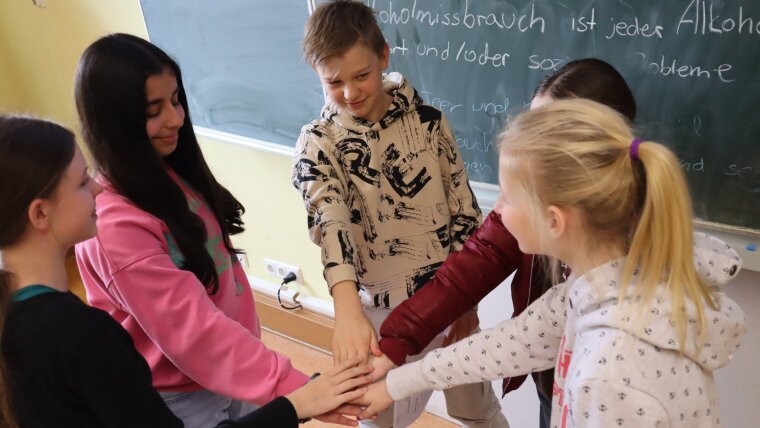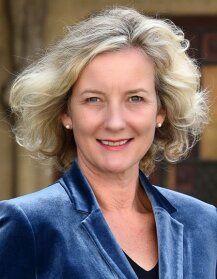
- Knowledge Transfer and Innovation
- Research
Published: | By: Sebastian Hollstein
Drugs will not solve any problems – as simple as this realization sounds, many people find it difficult to embrace. After all, there are 1.6 million people addicted to alcohol in Germany alone. It is therefore not only important to inform children and adolescents about drugs, their effects and the consequences of their misuse from an early age, but also to provide them with other coping mechanisms for the challenges that life brings.
To this end, psychologists at Friedrich Schiller University Jena have been running the "Information + Psychosocial Competence = Protection" programme – IPSY for short de – across Germany for several years. Thanks to renewed funding from Techniker Krankenkasse, they will be able to train teachers and educators free of charge in the coming years, who will be able to implement IPSY as lessons throughout the school year or in the form of a project week at their schools.
How do I make the right decisions?
What makes it special is that IPSY is much more than just an educational course about drugs. The programme focuses on comprehensive developmental support, strengthens the life skills of children and adolescents and thus enables them to say no to drugs. "For example, we help participants to develop confidence in making decisions, communication skills and stress resistance," says the head of the programme, Prof. Dr Karina Weichold from the University of Jena. "In this way, they develop a strong personality, become far more confident in the face of problems and arm themselves against the temptations of drugs."
"The scientifically sound, holistic approach of IPSY convinced us right from the start. The first milestone was to be able to offer the programme free of charge to schools nationwide since 2018 following the successful pilot phase in Thuringia. We are now looking forward to supporting the expansion of IPSY in the coming years," says Maike Schmidt, health management expert at Techniker Krankenkasse. "The life skills approach has a health-promoting effect on many levels, far beyond addiction prevention."
Potential to shape a school culture
In order to have an early impact, the programme is specifically designed for grades 5 to 7. The transition to secondary school can also be well supported within the framework of IPSY. "We focus on a dialogue with each other that is geared towards everyday life. This helps pupils get to know each other better," explains Jena psychologist Weichold. "This promotes social skills, such as empathy, brings the class together and improves the school climate. Ideally, the entire school community benefits."
Pupils with more life skills find it easier to learn, are more motivated and generally cope better at school. "In addition, feedback and studies confirm that IPSY provides teachers with an increase in what is known as school-related self-efficacy, and they also tell us directly that they feel more empowered to make a difference," says the programme manager. "This reinforces our decision to use some of the programme's content to specifically address the school as a social space and thus invite them to actively help shape learning and teaching at school." In this way, the relationship between teachers and pupils is positively influenced.
Lasting effect, even among young adults
Karina Weichold began developing the programme 25 years ago and since then has built up a comprehensive research programme on IPSY. "It was always a strength of IPSY that it was based at the University. This enabled us to support its implementation in schools, scientifically evaluate the programme and continuously optimize it in collaboration with those working in the field," says the Jena psychologist. Through a longitudinal study over an exceptionally long period of time, she was able to show, for example, that IPSY participants also benefit from the skills development programme as young adults.
Since the start of the practice transfers in 2015, Karina Weichold and her team have trained more than 1,700 teachers and brought IPSY to around 850 schools across Germany. Colleagues have also spread the IPSY idea abroad. Just in time for the start of the new project phase, a revised version of the IPSY handbook has been published, which supports teachers in implementing IPSY in an even more user-friendly way and with additional didactic improvements. A new website provides detailed information about the programme, how it is received by pupils and teachers and announces upcoming training dates. In the future, the team will be working on an extension of IPSY for grade 8, in which they will be able to address issues relating to the new cannabis law, for example.
